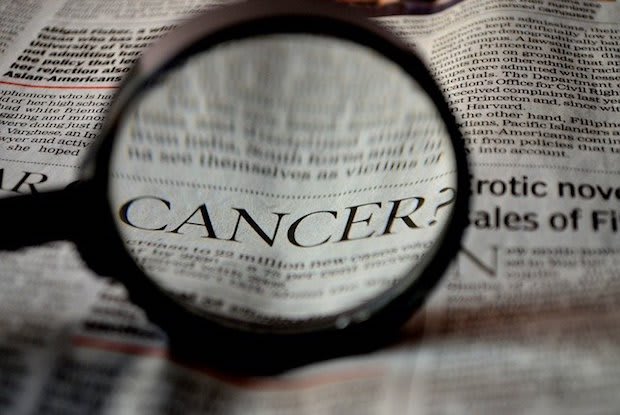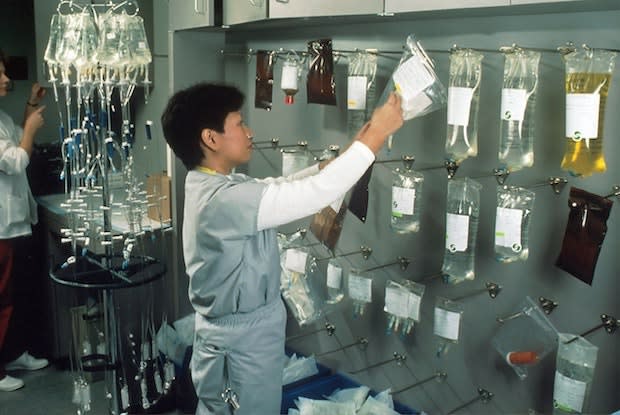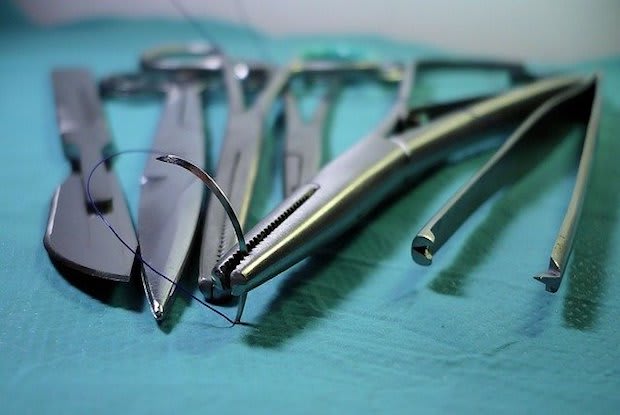Table of Contents
I. Cancer in the United States
II. Understanding Cancer Treatments
IV. Treating Anesthesia & Cancer Treatment Symptoms
Cancer in the United States
Cancer is a word no one wants to hear during a doctor’s appointment. As of January 2019, over 16 million people in the United States have a history of cancer. The three most prevalent cancers include prostate, colon, melanoma of the skin, and breast cancer. As we age, our likelihood of developing cancer increases. Some forms are more treatable than others, but you are likely to undergo cancer treatment or surgery if you are diagnosed. [1]
Radiation and chemotherapy are intensive treatments used to eliminate cancerous cells in the body. In other cases, doctors may surgically remove your cancer. Undergoing cancer treatment and surgery can result in several unpleasant side effects. If you are prone to nausea or vomiting after receiving surgical anesthesia or cancer treatments, your doctor may prescribe Transderm Scop or Zofran (ondansetron). Read on to learn more about the connection between anesthesia and cancer treatments.
Our body's cells continually divide and grow throughout our lives to replenish cells that die. This process is constantly happening in the body. Cancer occurs when this process breaks down. Abnormal cells that survive when they should die may form unnecessary new cells. If cells continue multiplying, they may form tumors. These tumors may contain cancerous cells, whereas other cancers like leukemia occur in the bloodstream. If a tumor is malignant, abnormal cells may spread to other parts of the body and affect the blood and lymph system. Other tumors may be non-cancerous or benign and will not invade nearby tissues. If your doctor determines you have a tumor, you may undergo surgery to remove benign tumors or undergo chemotherapy or radiation to shrink malignant tumors. [2] There are several chemotherapy drugs available to kill cancerous cells in the body. This treatment is typically used in combination with other treatments to treat cancer but has several side effects. Chemotherapy may be used to: Your doctor will create a specific chemotherapy cocktail for your cancer condition. They will take into account your stage of cancer, type of cancer, and overall health. Chemotherapy can be given through infusions, pills, shots, or creams. The chemicals within chemotherapy are potent and cause several side effects, including: This cancer treatment does not involve chemicals but beams of intense energy. These beams can be concentrated in a certain area to kill cancerous cells. Radiation destroys the genetic material in cells that allow them to grow and divide. Over half of people with cancer undergo radiation therapy. This therapy can: The side effects that may occur with radiation therapy depend on the area where the body is radiated. Some people may experience few side effects, but they are normally temporary. Cancer is the most common cause of death in the United States. There is no cure for this disease, and treatment options work differently for everyone. There are many cancer treatments, and many patients undergo surgery that may or may not be related to their cancer. Experiencing surgical anesthesia, as well as chemotherapy, can leave a person feeling incredibly nauseous and unwell. [5] When a person experiences chemotherapy, a certain brain area is triggered and causes nausea and vomiting symptoms. This therapy can also trigger the esophagus and stomach, increasing the risk of vomiting and stomach upset. [6] Anesthesia can have similar effects on the body. Postoperative nausea and vomiting occur in around half of the people who receive anesthesia during a procedure. The type of anesthesia you receive affects your post-surgery symptoms. Both anesthesia and cancer treatments trigger the same area of the brain that causes nausea symptoms. [7] Treating cancer is a mentally and physically exhaustive process, but medications are available to treat symptoms. Zofran (ondansetron) helps prevent nausea and vomiting, especially with chemotherapy and radiation therapy. Zofran blocks the release of serotonin (serotonin causes vomiting). Take this drug around 30 minutes before your chemotherapy treatments and one to two hours before radiation therapy. Ask your doctor before taking this medication. [8] If you have surgery (cancer-related or not), you may also experience nausea and vomiting due to anesthesia. The drugs in anesthesia disrupt the balance of acetylcholine and norepinephrine in the brain, causing motion sickness. Medications like Transderm Scop can prevent post-surgery side effects through a skin patch that releases anti-nausea drugs in the body over three days. If you are experiencing unpleasant symptoms due to anesthesia or cancer treatments, talk to your doctor. [9] The content in this article is intended for informational purposes only. This website does not provide medical advice. In all circumstances, you should always seek the advice of your physician and/or other qualified health professionals(s) for drug, medical condition, or treatment advice. The content provided on this website is not a substitute for professional medical advice, diagnosis, or treatment.
Understanding Cancer Treatments
a. What is Chemotherapy?

b. What is Radiation Therapy?
Cancer & Anesthesia

Treating Symptoms of Anesthesia & Cancer Treatments
